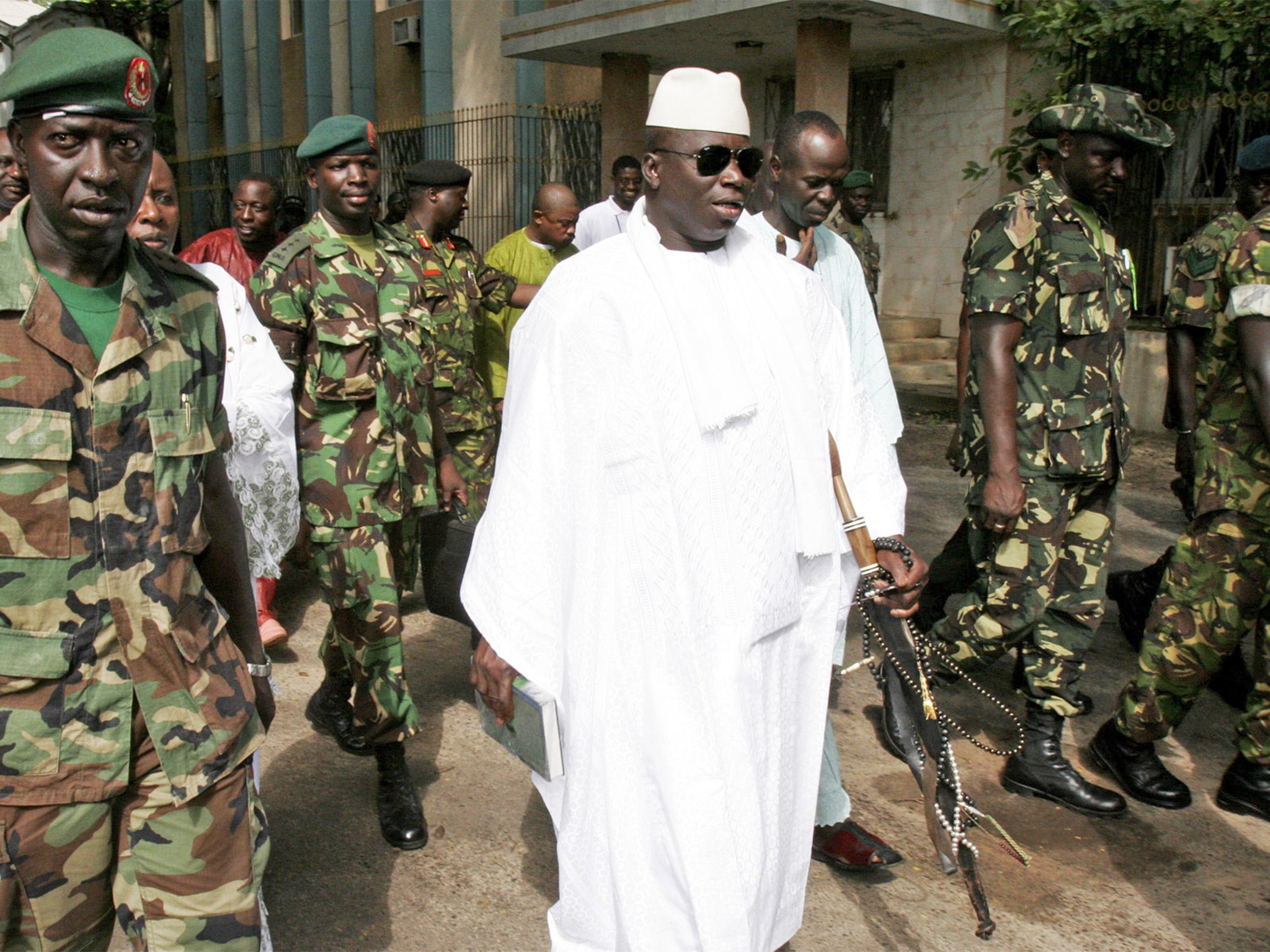Gambia pulls out of ‘racist’ ICC amid fears of a mass African exodus
‘The world is going backward. The chaos is coming’

Your support helps us to tell the story
From reproductive rights to climate change to Big Tech, The Independent is on the ground when the story is developing. Whether it's investigating the financials of Elon Musk's pro-Trump PAC or producing our latest documentary, 'The A Word', which shines a light on the American women fighting for reproductive rights, we know how important it is to parse out the facts from the messaging.
At such a critical moment in US history, we need reporters on the ground. Your donation allows us to keep sending journalists to speak to both sides of the story.
The Independent is trusted by Americans across the entire political spectrum. And unlike many other quality news outlets, we choose not to lock Americans out of our reporting and analysis with paywalls. We believe quality journalism should be available to everyone, paid for by those who can afford it.
Your support makes all the difference.Gambia has declared its intention to withdraw from the International Criminal Court, amid growing fears of a mass African exodus from the world body designed to prosecute those who commit the gravest atrocities.
The west African nation described the ICC as a racist organisation which is “involved in the persecution and humiliation of people of colour, especially Africans”.
It comes just a few days after South Africa began the formal process of withdrawal from the Rome Statute, the founding treaty of the ICC. Burundi has also announced its intention to withdraw in due course.
The perception that the ICC is only used to punish African leaders has gained traction across the continent. Namibia and Kenya have raised the possibility of pulling out, while Uganda said it was sure to be a “hot topic” for the African Union’s next meeting in January.
All six ICC cases that are ongoing or about to begin involve people from African states. That said, all but one of those cases were brought by African nations themselves or the UN Security Council, and preliminary ICC investigations have opened elsewhere.
Gambia’s decision to withdraw is a particular blow to the court, as its chief prosecutor, Fatou Bensouda, is herself a former Gambian justice minister.
Its information minister, Sheriff Baba Bojang, said in the statement late on Tuesday that the court was involved in "the persecution of Africans, and especially their leaders”.
He said “at least 30” Western countries had committed war crimes with impunity since the creation of the ICC in 2002, singling out the actions of UK prime minister Tony Blair in the Iraq War as an example.
Withdrawal was “warranted by the fact that the ICC, despite being called International Criminal Court, is in fact an International Caucasian Court for the persecution and humiliation of people of colour, especially Africans”, he said.
South Africa, once one of the ICC’s staunchest supporters, announced its decision to withdraw after a row over the government’s decision to grant free passage to Sudanese President Omar al-Bashir, who is wanted for arrest by the court.
Gambian President Yahya Jammeh, one of Africa's longest-serving leaders, is accused by rights groups of various abuses including a clampdown on political opponents.
Burundi has been dogged by recent reports of state-sponsored violence along ethnic lines. Its president approved legislation on leaving the ICC last week. Former ICC prosecutor Luis Moreno Ocampo said that by undermining the court, countries were giving the continent’s leaders free rein "to commit genocide". He told the AFP news agency Burundi’s president in particular “wants free hands to attack civilians”.
“The world is going backward,” he said. “The chaos is coming. Genocide in Burundi and a new African war are in motion.”
In a statement on the ICC’s website, the president of the assembly of member states Sidiki Kaba said he feared the path Africa appeared to be taking. The ICC relied on global cooperation “in order to ensure the right to universal justice to all victims of mass crimes”, he said.
He said he regretted the decisions of those leaving, which risked leading others to do the same, adding: “I urge them to work together with other states in the fight against impunity, which often causes massive violations of human rights.”
Under the terms of the Rome Statute, a country completes its withdrawal one year after it formally notifies the UN secretary-general of its desire to do so. Burundi and Gambia both said they had begun the process of leaving, though the UN said it had only received South Africa’s formal notification.
Join our commenting forum
Join thought-provoking conversations, follow other Independent readers and see their replies
Comments